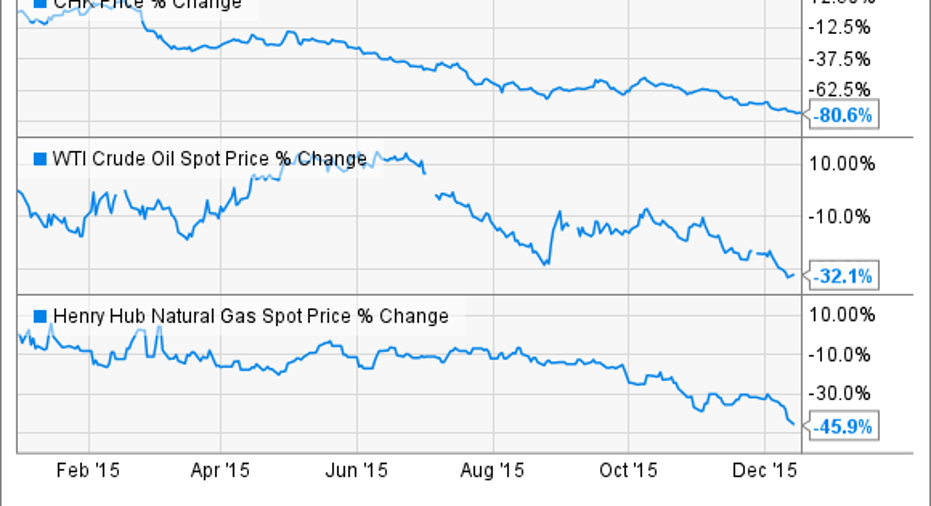Oil CEOs' Dumbest Moves in 2015

This has been a very tough year for the oil industry, with many calling it the worst downturn in decades. However, despite these tough conditions, a number of oil companies made what, in hindsight, were very dumb moves. Here's a look back at some of the worst offenders.
Growing for the sake of growthDespite a vastly oversupplied oil and market, nearly every single U.S. producer pressed on and spent every penny they could scrape together to continue growing production. That being said, there were two types of growth-driven companies this year: those that paid for it via cash flow and those that spent well above their cash flow to drive growth. While neither move was smart, burning through cash just because it was on the balance sheet to chase growth was just plain dumb.
One company, in particular, that stands out as the worst offender isChesapeake Energy . The oil and gas driller not only started the year with a capex plan that was above its cash flow, but when it made adjustments throughout the year, it chose to accelerate growth instead of cut back on spending even after commodity prices materially weakened. The net result was an abysmal performance:
CEO Doug Lawler tried to justify the outspend on the company's second-quarter conference call by saying that:
In other words, Lawler didn't see it as growth for the sake of growth because the returns still looked good at what commodity prices were projected to be in the future based on the strip price in the futures market. That said, those futures turned out to be wrong with prices soon plunging, which led Chesapeake Energy to burn through billions of dollars in cash this year.
The false startThe other dumb move happened when oil prices spiked earlier in the year to around $60 per barrel. That spike caused a couple of oil companies, including Pioneer Natural Resources, to reload their capex plans to accelerate growth. In Pioneer's case, after competing the first phase of the sale of its Eagle Ford shale infrastructure assets, the company decided to plow $350 million of the $1.3 billion in cash it will receive back into its drilling program by boosting its 2015 capex spending to $2.2 billion. This cash would accelerate its production growth from 10%+ this year to 15% growth in 2016 and beyond.
However, with oil prices weakening over the course of the year Pioneer Natural Resources pulled back on its plans. It initially planned to add a dozen drilling rigs by the end of the year, but it stopped after adding eight rigs. Furthermore, it said that it was also reconsidering whether to add more rigs next year.
With the world already oversupplied with oil, it was a dumb move to decide to accelerate its oil production growth until the glut had started to show signs of dissipating. Because of this, Pioneer Natural Resources and others that followed this path should have just held on to their cash pile until conditions improved instead of hitting the accelerator at the first sign that oil prices were rebounding.
Investor takeawayOil CEOs were just too bullish on oil prices this year. Many didn't consider the possibility that prices could decline any further so they plowed every available penny into more wells, which really only exacerbated the problem. While almost the entire industry can be blamed, Chesapeake Energy and Pioneer Natural Resources stood out for making dumb moves. Not only did both accelerate production growth into an increasingly oversupplied market, but both paid for this growth not with cash flow but with cash from their balance sheets. It's cash that both companies might wish they held on to, given the renewed weakness in oil prices over the past month.
The article Oil CEOs' Dumbest Moves in 2015 originally appeared on Fool.com.
Matt DiLallo has no position in any stocks mentioned. The Motley Fool has no position in any of the stocks mentioned. Try any of our Foolish newsletter services free for 30 days. We Fools may not all hold the same opinions, but we all believe that considering a diverse range of insights makes us better investors. The Motley Fool has a disclosure policy.
Copyright 1995 - 2015 The Motley Fool, LLC. All rights reserved. The Motley Fool has a disclosure policy.



















